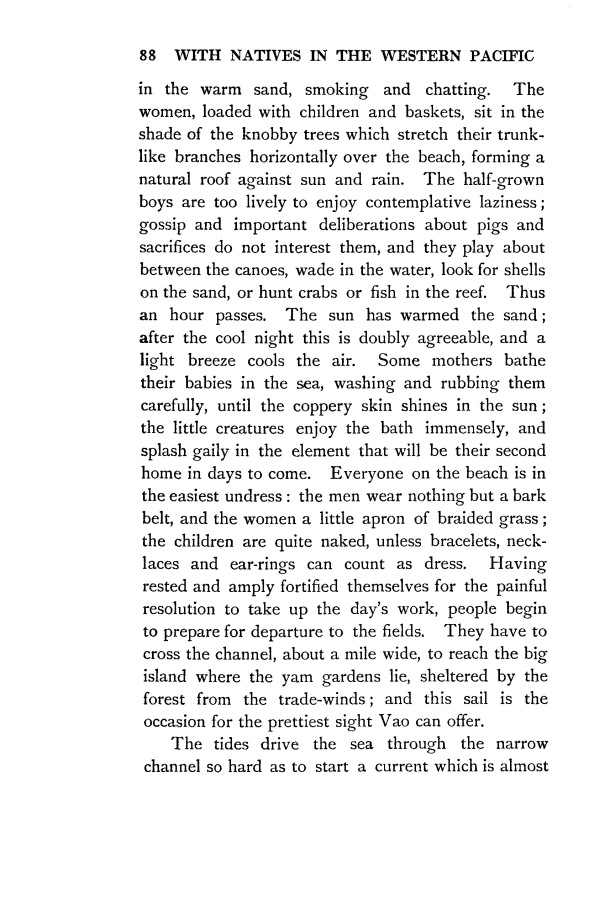|
|  [Note: this transcription was produced by an automatic OCR engine]
88 WITH NATIVES IN THE WESTERN PACIFIC
in the warm sand, smoking and chatting. The
women, loaded with children and baskets, sit in the
shade of the knobby trees which stretch their trunk-
like branches horizontally over the beach, forming a
natural roof against sun and rain. The half-grown
boys are too lively to enjoy contemplative laziness;
gossip and important deliberations about pigs and
sacrifices do not interest them, and they play about
between the canoes, wade in the water, look for shells
on the sand, or hunt crabs or fish in the reef. Thus
an hour passes. The sun has warmed the sand;
after the cool night this is doubly agreeable, and a
light breeze cools the air. Some mothers bathe
their babies in the sea, washing and rubbing them
carefully, until the coppery skin shines in the sun;
the little creatures enjoy the bath immensely, and
splash gaily in the element that will be their second
home in days to come. Everyone on the beach is in
the easiest undress : the men wear nothing but a bark
belt, and the women a little apron of braided grass;
the children are quite naked, unless bracelets, neck-
laces and ear-rings can count as dress. Having
rested and amply fortified themselves for the painful
resolution to take up the day’s work, people begin
to prepare for departure to the fields. They have to
cross the channel, about a mile wide, to reach the big
island Where the yam gardens lie, sheltered by the
forest from the trade—winds; and this sail is the
occasion for the prettiest sight Vao can offer.
The tides drive the sea through the narrow
channel so hard as to start a current which is almost
|